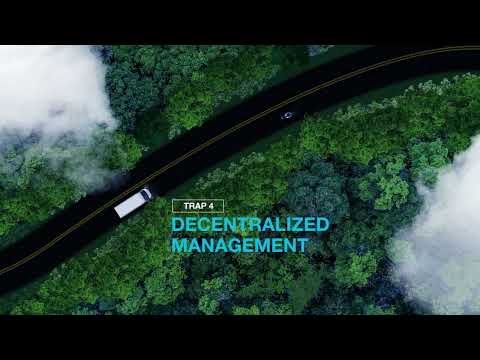4 Questions to Ask While Planning Your 2023 Fleet Management Budget
Holman Marketing
November 16th, 2022

With the year soon coming to a close, you’ve likely begun mapping out your budget for 2023, and there’s a lot to consider. Interest rates are rising, fuel prices are volatile, and supply chain disruptions are still impacting the auto industry. So how do you account for these variables when developing your fleet budget? By taking a proactive and strategic approach that evaluates each stage of the vehicle lifecycle.
While you’re looking for opportunities to reduce fleet management costs, consider the following questions:
1. What’s the best funding option for your fleet?
Before factoring in the cost of acquiring new vehicles, ask yourself: What type of vehicle is best suited for the job? What happens if there are supply chain delays? Which will best align with your fleet’s financial goals: flexible financing, an open-end, or a closed-end lease?
Determining the answers to these questions requires insight, which is why we combine your business data with economic and consumer-based research to find the best solution. We’ll help you choose the right vehicle for each job, manage supply chain logistics in-house, and secure the right funding to meet your business’s needs and keep costs down despite rising interest rates.
2. How can you cut costs related to driver behavior?
From risky driving habits to unreported personal use of business vehicles, driver behavior can impact your bottom line tremendously. However, you could significantly reduce your costs by using tools like Holman’s Driver Scorecard and Driver Insights to identify and address risky drivers faster, create a safety culture within your organization and establish efficient reporting policies that reinforce accountability. Safer drivers mean lower accident rates and fewer repair costs and legal fees.
3. How can you decrease downtime and account for it more accurately within your budget?
Preventive maintenance and comprehensive vehicle tracking will maximize the productivity of your fleet. By continuously monitoring your vehicles’ usage and operating costs, you’ll be able to identify units trending outside current average parameters sooner, enabling you to tend to issues before they escalate and become more costly. Furthermore, as you notice aging vehicles running less effectively and losing fuel efficiency, you’ll want to budget for increased operating costs, including maintenance and fuel spend.
4. How and when should you go about replacing vehicles?
The used vehicle market is still booming. Now is the optimal time to sell those assets whose operating costs will soon exceed the value they’re producing for your business. Our remarketing experts will get your vehicles in front of the right buyers, so you can receive the best net sale price and use the cash to offset other expenses.
As you finalize your 2023 budgeting plans, keep the above in mind, and remember, we’re always here to assist.
Related Resources
Explore more related industry news, insights, and developments.




